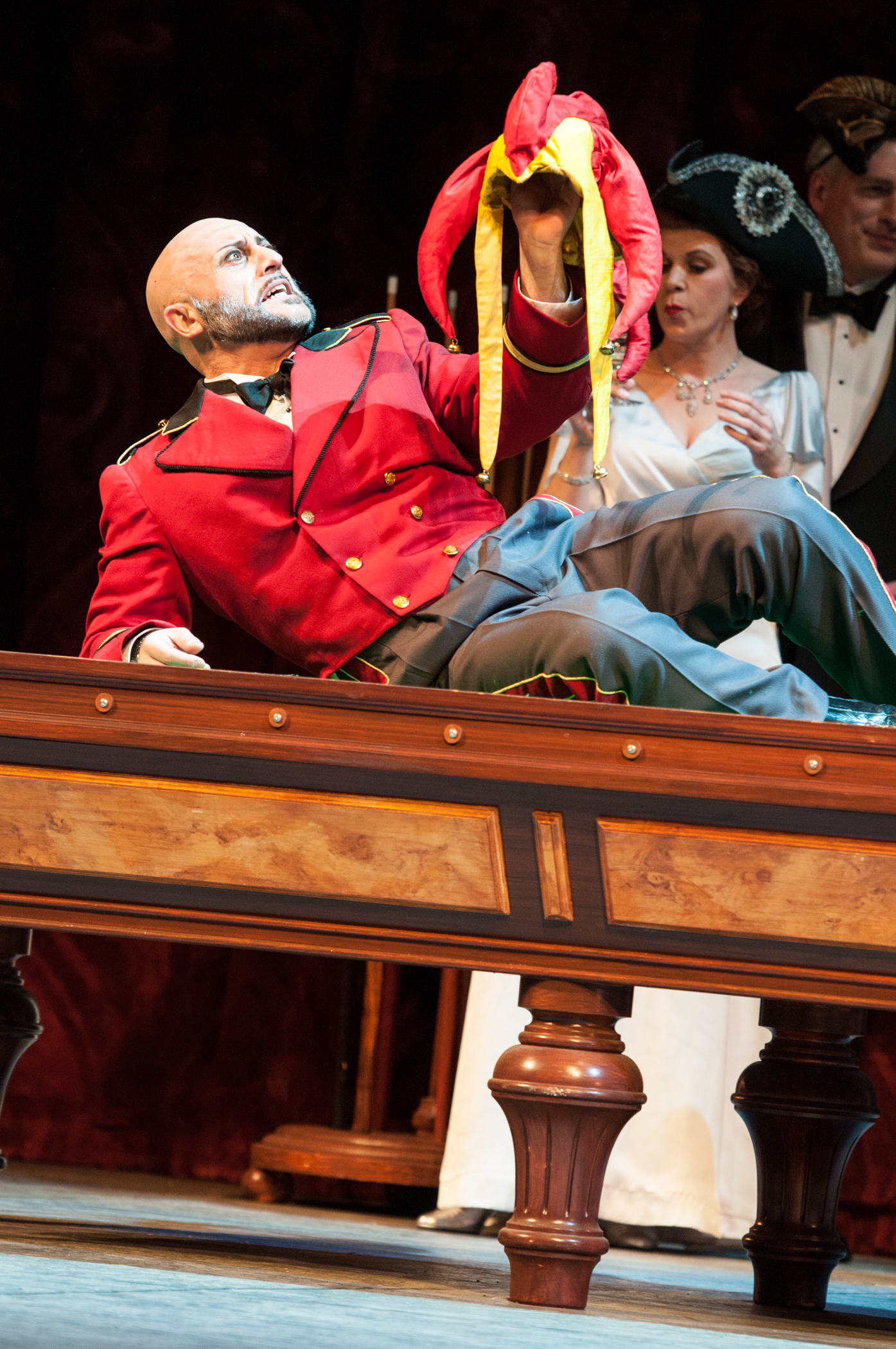Rigoletto
McCaw Hall, 321 Mercer St. (Seattle Center), 389-7676, seattleopera.org. $25 and up. 7:30 p.m. Wed. & Sat., plus 7:30 p.m. Fri., Jan. 24. Ends Jan. 25.
To anyone still inclined to oppose updating operas, modernizing their period settings, Verdi himself provides a counterargument in his 1851 Rigoletto. Nominally set in the 16th century, it opens with a party scene at the palace of the Duke of Mantua; and right away Verdi provides a perfectly anachronistic minuet in Mozartean style. If you can accept a 200-year jump forward in a piece of dance music, you should have no problem with Linda Brovsky’s Mussolinization for Seattle Opera.
Fascist imagery, deco furniture, and Marie Anne Chiment’s lovely vintage costumes place this Rigoletto in the 1930s, like the renaissance a high point in Italian history for the abuse of power. Portraying, grippingly, this corrupt society’s emotional toll is Marco Vratogna as the title court jester—self-loathing in his sucking-up to power, guilt and anguish running through every passionately full-voiced line. As Gilda, the daughter he cherishes and shelters (to a fault), Nadine Sierra sings with a marvelous lightness, youthful in timbre if mature in body, flexibility, and assurance. The same is true of Francesco Demuro as the Duke, who seduces her; so well-matched are they in vocal weight that it shades the drama with a cruel irony: They’re perfect for each other in musical terms yet inevitably doomed by the libretto. Bringing his distinctively colored voice and imposing stage presence as killer-for-hire Sparafucile is Andrea Silvestrelli, memorable as Fasolt and Hunding in last summer’s Ring and a very welcome returnee. Judging by the thrill that rippled through the audience at the end of his first scene, his was the evening’s most impressive performance.
Rigoletto is generally seen as a step forward among Verdi’s operas for, among other things, its unpadded and flowing dramatic action, not chopped up into discrete and formal set pieces, as had been the practice. As if to close the door on earlier Italian-opera conventions and show the ghosts of his ancestors how it should be done, Verdi takes the bel canto approach one last time in Gilda’s “Caro nome”—in a way, Rossini’s greatest aria. Its expressive method is a throwback—less a matter of sweeping melody or dramatic thrust than of palpitating ornamentation of the vocal line, emotion taking wing via the throat. Sierra sings a good bit of the aria lying on her back, surprisingly, and doesn’t shy from exploring its eroticism, making love to the image in her head—she thinks the Duke is a poor student named Gualtier—with every caressed roulade.
Even this aria—usually a moment of innocence, a respite—intensifies the opera’s misanthropic take on human nature. Power corrupts, but so do lust, money, fear, the thirst for revenge, and whatever it is Gilda wants. Verdi indicts everyone—nobody in Rigoletto is honest; even Gilda, Little Miss I-met-him-in-church, is kidding herself, willfully blind to the Duke’s caddishness even after she discovers what he really is. It’s all pretty dark. And a heck of a compelling show.
gborchert@seattleweekly.com







